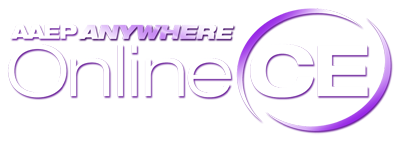
AAEP Webinar: From "Good Enough" to "A Good Life": Social License in Equestrianism
Recorded On: 07/16/2025
-
Register
- AAEP Lexington Staff - Free!
- AM - Free!
- DLM - Free!
- DM - Free!
- HM - Free!
- IM - Free!
- PP - Free!
- RES - Free!
- RM - Free!
- EM - Free!
- SM - Free!
July 16, 2025: The evolving relationship between humans and horses is increasingly shaped by societal expectations and ethical scrutiny, especially as equestrian sports come under the lens of public opinion. The concept of social license to operate (SLO) is no longer a peripheral concern—it is central to the future of equestrianism. SLO reflects the informal, dynamic approval granted by society for certain practices to continue. In the equestrian context, maintaining this license requires more than compliance with minimum welfare standards; it demands demonstrable commitment to horses' quality of life—what some have called “a life worth living,” or better yet, “a good life.” Public trust hinges not just on visible welfare improvements but on transparent, ethical decision-making that places equine interests at the heart of equestrian activity. Equine sports must proactively engage with welfare science and public values, lest they face loss of legitimacy. Little by little, we move towards providing positive opportunities for our horses, rather than just avoiding negative affective states.
This session will convey 1.5 RACE-accredited CE credits to those who attend the live session. No RACE-accredited CE for on-demand viewing.
Key:
Camie Heleski
Camie Heleski received her Ph.D. in Animal Science with an emphasis in equine behavior and welfare (from Michigan State University); her M.S. was also in Animal Science, with an emphasis in equine nutrition and exercise physiology. She worked at Michigan State University for 25 years as Coordinator of their Horse Management Program. In 2016, she began teaching at the University of Kentucky in the Equine Science and Management program, where she teaches Equine Industry Issues, co-teaches the Equine Senior Capstone course, and also teaches the multi-species Animal Behavior & Welfare class.
Her applied research interests revolve around equine behavior and welfare, horse-human interactions, sport horse welfare issues and working equids in developing regions of the world. She has been actively involved with the International Society for Equitation Science as a Council member and Honorary Fellow. One of her recent publications was a co-authored piece in the journal of Sustainability: Thoroughbred Racehorse Welfare through the Lens of ‘Social License to Operate' — With an Emphasis on a U.S. Perspective.
Dr. Heleski was fortunate to grow up on an Arabian horse farm where she helped her family with training, showing, breeding and managing horses. She has recently completed a role on the FEI’s Commission for Equine Ethics and Wellbeing, which is largely related to social license to operate.

